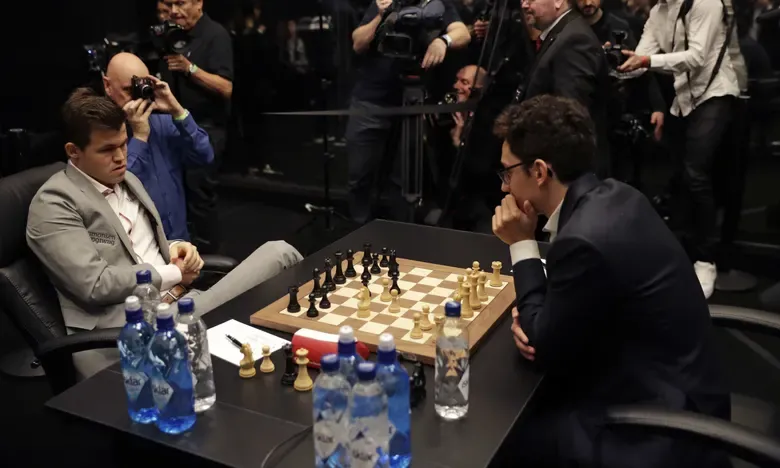The "classical chess" portion of the chess world championship match has ended in a draw. Moreover, this is the first time in the 132 year history of the world championship that every single game of a title match has also ended in a draw! The match will now be decided by a tie-breaker with rapid-play games and (if necessary) blitz games and an "Armageddon" game.
Lots of commentators are beating up on Carlsen for drawing the match and today's game. I lack the expertise to really assess this. But it seems to me it's an issue of incentives: the short length of the match (12 games) gives the player who is better in rapid play a strong incentive to avoid taking risks in the "classical" games. He knows
- he need only draw a few games to get to the tie-breaker, and ..
- doing so is almost as good as winning the match the regular way.
That surely affected Carlsen's strategy in this match, and also the 2016 match against Karjakin (which also ended in a tie, after which Carlsen won the tie-breaker). If we were in his place, we might act the same way.
Just a bit of economics insight : if you want different outcomes, you need different rules that create better incentives. Make the match longer (thereby making it harder to draw every game), eliminate the tie-breaker system in favour of more "classical" games, or even go back to the old Fischer policy of playing to a set number of wins. No doubt, experts can suggest other (and perhaps better) options.
